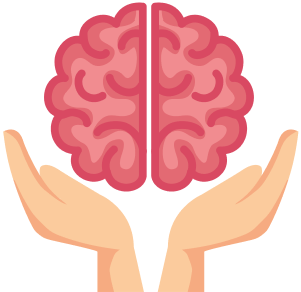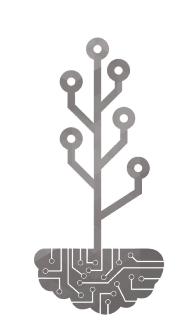Experiencing recurring thoughts, impulses, or mental images that cause anxiety? This could be a sign of Obsessive-Compulsive Disorder (OCD). Our OCD test consists of a series of questions designed to identify common OCD symptoms. Taking this test can help determine if you might need to seek help from a mental health professional.

On average, the test consists of around 20 questions. In some cases, you might need assistance or insights from someone who knows you well.

OCD is diagnosed by a licensed mental health professional through a clinical interview and assessment of symptoms. Taking our OCD test can be a helpful initial step in understanding potential signs of OCD and deciding whether professional help is required.
OCD is a potentially debilitating disorder that can interfere with daily life. It's important to identify symptoms early for effective treatment. Taking our OCD test can provide preliminary insights and help you determine if seeking professional diagnosis and treatment is the next right step for you.
Our OCD online test is quick, private, and completely free. It can be taken from the comfort of your own home, without needing a referral or appointment. Please note that our test is not a diagnostic tool and cannot replace a clinical evaluation by a licensed mental health professional. But it can provide preliminary insights and help you decide whether to seek further evaluation or treatment.

Individuals with OCD may also experience comorbidities such as anxiety disorders, mood disorders, and other obsessive-compulsive and related disorders (OCRDs). Understanding these related conditions can be critical as they often impact the severity of OCD symptoms and treatment options.
It's important to be aware of these related conditions as they can often influence the management and treatment of OCD.
We are committed to providing comprehensive resources and support for individuals with OCD and their loved ones. Take our OCD test today to start your journey towards better mental health.

Obsessive-Compulsive Disorder (OCD) is a mental health disorder characterized by two core symptoms: obsessions and compulsions. Obsessions are unwanted and intrusive thoughts, images, or urges that cause significant anxiety or distress. Compulsions are behaviors an individual engages in to attempt to get rid of the obsessions and decrease their distress.
Yes, OCD and other anxiety disorders can share similar symptoms, such as excessive worry and avoidance behavior. However, the key distinguishing factor is that individuals with OCD perform compulsive actions in response to their obsessive thoughts. A thorough evaluation by a mental health professional is essential to get an accurate diagnosis.
Only a licensed mental health professional can diagnose OCD or an anxiety disorder. If you're experiencing symptoms of either condition, it's important to seek an evaluation to receive an accurate diagnosis and appropriate treatment.
An OCD episode involves experiencing distressing obsessive thoughts, followed by the compulsion to perform certain actions to alleviate the distress. This could include excessively checking things, constant cleaning, or repeatedly following certain routines or rituals.
OCD is typically diagnosed through a clinical interview with a licensed mental health professional. The mental health professional will look for the presence of obsessions and compulsions and assess the extent to which these symptoms are interfering with the individual's daily life.
While OCD cannot be cured, it can be effectively managed with the right treatment, which may include Cognitive-Behavioral Therapy (CBT), Exposure and Response Prevention (ERP), medication, or a combination of these. With appropriate treatment, many people with OCD can lead full and productive lives.
About 2-3% of the population is thought to have OCD at some point in their life. It is a common disorder that affects adults, adolescents, and children all around the world.
The time to diagnose OCD can vary depending on the individual and their specific symptoms. The diagnosis usually involves several sessions with a mental health professional to conduct a comprehensive clinical assessment.
OCD is believed to be caused by a combination of genetic, neurobiological, behavioral, cognitive, and environmental factors. Triggers can vary widely among individuals but could include stress, changes in living situation, illness, or the death of a loved one. Not everyone who experiences these triggers will develop OCD, but they can precipitate the onset of symptoms in those who are predisposed.
OCD is typically a chronic condition, meaning it can be a lifelong condition. However, with effective treatment, individuals can significantly reduce their symptoms and improve their quality of life. Some people may experience periods where their symptoms worsen and then improve. It's important to seek help if you're experiencing symptoms of OCD.
Yes, there are several subtypes of OCD that are identified by the nature of the obsessions and compulsions experienced. These can include but are not limited to: Contamination OCD, Harm OCD, Symmetry OCD, and Hoarding OCD. Each subtype has specific characteristics, but all involve both obsessions and compulsions.
OCD can certainly have an impact on personal relationships. The time spent on performing compulsions can interfere with daily activities and social interactions. Additionally, the stress and anxiety associated with OCD can strain relationships. However, with appropriate treatment and support, individuals with OCD can manage these challenges effectively.